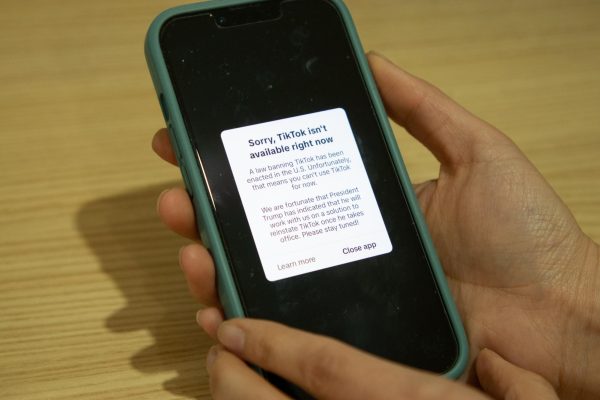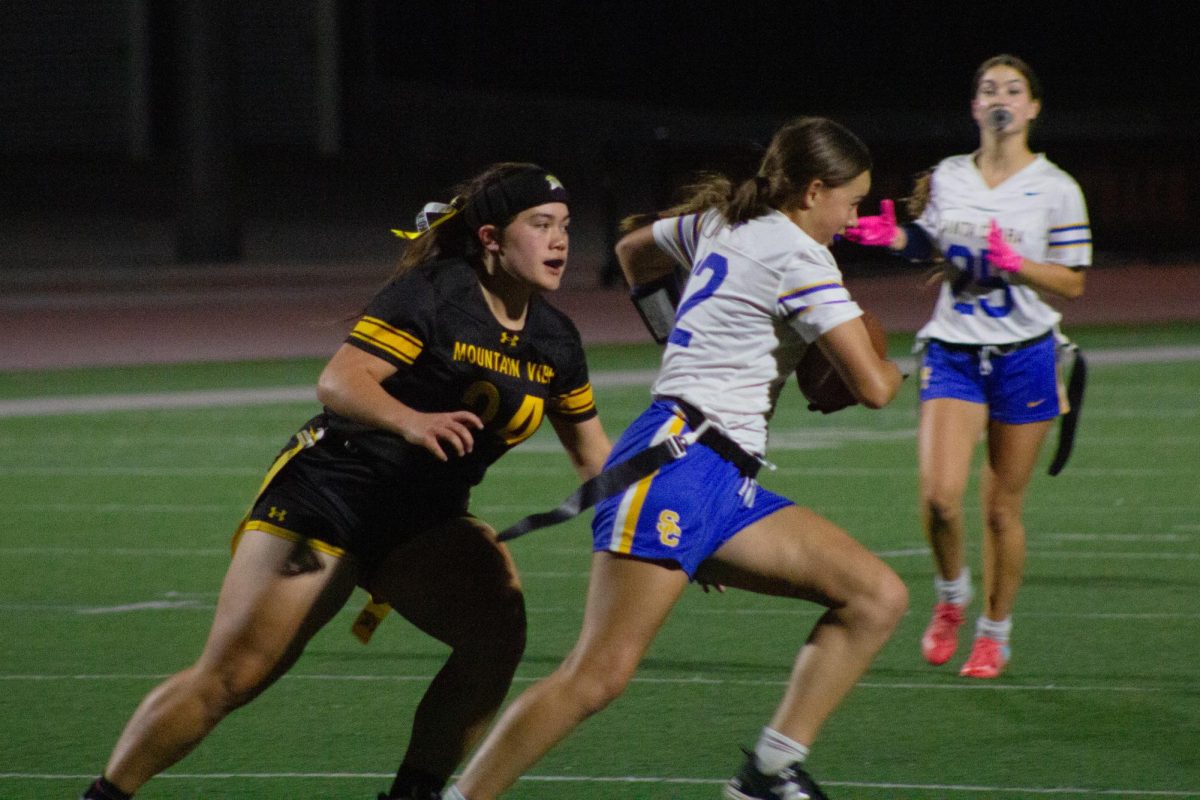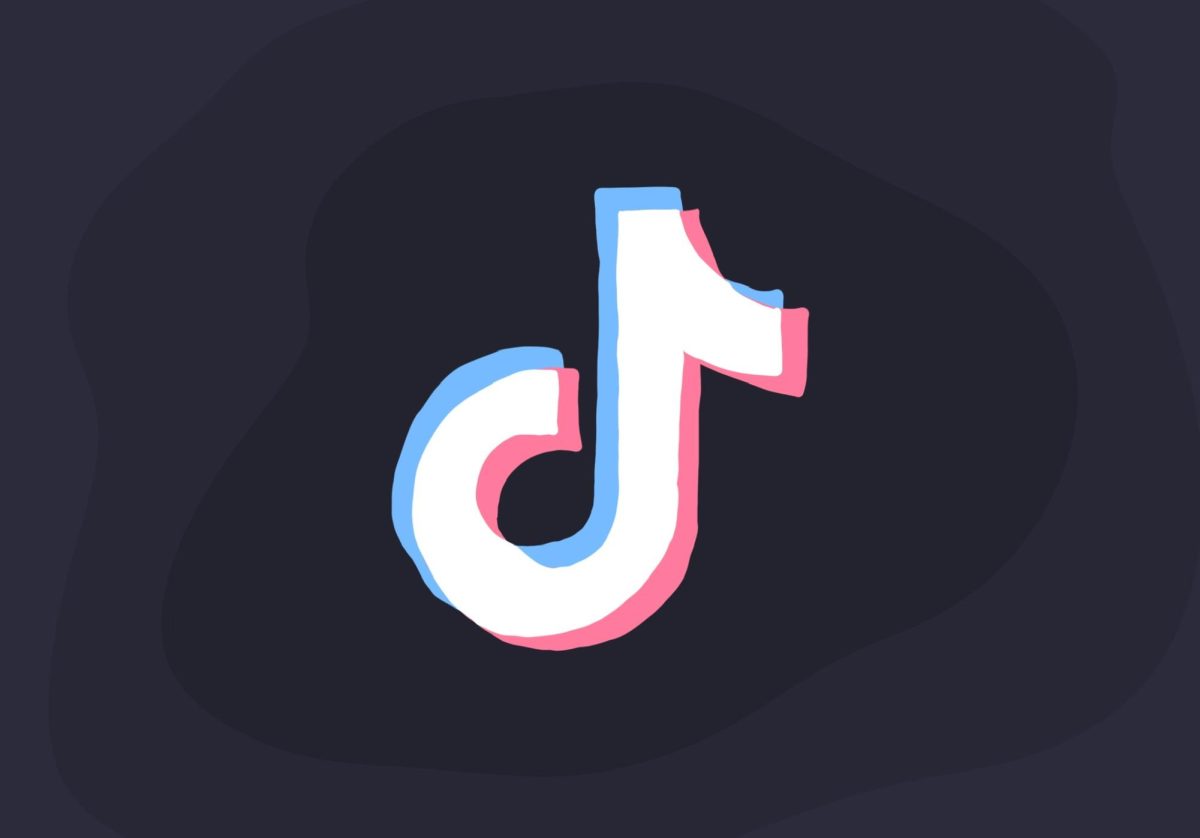When users tried to open TikTok Saturday night, the words “Sorry, TikTok isn’t available right now” popped up front and center on their screen. TikTok was officially shut down in the United States, making the app inaccessible for its 170 million American users. But, 12 hours later, TikTok was back online.
TikTok’s shutdown was in response to a law passed in Congress last year that banned app stores from offering the app. The Supreme Court upheld the law, and a day later, TikTok went dark. Privacy and data concerns surrounding ByteDance, TikTok’s parent company, and its country of origin: China, triggered the ban. The law required TikTok to be sold to an American company by Jan. 19 in an effort to remove it from Chinese control.

According to Tiktok, its surprise restoration comes after negotiations with President Trump to continue its operations, a complete 180 from Trump’s initial stance where he tried unsuccessfully to ban the app during his previous presidential term. In Dec. 2024, however, Trump stated that he had a “warm spot” for the app because of the role TikTok played in his election victory. Shortly after his Jan. 20 inauguration, Trump signed an executive order delaying the ban for another 75 days. Still, it remains unavailable on app stores for download.
TikTok remains enormously popular among American youth – 63% of teens used TikTok in 2023, making it the second most popular social media platform, according to the Pew Research center. For influencers, the ban meant more than losing a just platform: it also meant losing years of memories and friendship.
“What am I gonna do?” MVHS junior Bella Gluchowski said. Her account on TikTok is followed by over 23,000 people. “All of that [work] for what?”
Jacob James, an MVHS junior, has been able to build a platform of more than 300,000 followers on TikTok by posting life updates and relatable content.
“[TikTok has] made me feel more confident about myself,” James said. “It gave me a voice.”
Junior Saumya Anand said she avidly uses TikTok to promote her music and singing. Many small businesses and aspiring artists have used Tiktok to jumpstart their careers, she said. Although the ban has been delayed, the future of the app remains uncertain, alarming both creators and users. Some, such as senior Luke Stephenson, a TikTok user, dispute the justifications for the ban in the first place.
“Considering the lawsuits we’ve gone through with American companies collecting and stealing data, I don’t think China’s gained anything more harmful than what American companies already possess on United States consumers,” Stephenson said. “Banning TikTok specifically isn’t going to do much to stop China from collecting US citizens’ data.”
Other MVHS users said they believe banning TikTok signaled a large overstep of the government that infringes on the First Amendment right to free speech.
“What the United States is threatened by is not the stealing of data [like] it claims,” Anand said. “The concern is gaining control over the media we can see.”
TikTok is uniquely important to the preservation of free speech because of its accessibility, said senior Meera Mathew.
“[It] does a good job of entertaining a more diverse view of opinions, opinions you might not necessarily see represented in more publicly funded media,” Mathew said. “Anyone can post a video on Tiktok, that’s what makes it a good platform.”
Anand wanted to dispel the popular misconception that TikTok was only a vapid and addicting social media site. To her, it is a “very big source of happiness and wholesome content.”
“It’s not like I’m disconnected from other people while [using it], because all of us from all over the country, all over the world, are in the same comment section laughing about the same video,” Anand said. “It’s like a global joke that everyone is in on.”
Yet, some others view the ban in a positive light, as a way to break away from an addictive and self-destructive cycle of scrolling.
“I’m hopeful that the ban will change me for the better,”said senior Hannah Rutherford, who has over 275,000 total likes on TikTok.
Rutherford said when some of her TikToks unexpectedly went viral, her screen time shot up and she created an unhealthy obsession with likes and interactions. She hopes that with the ban, she could pick up new hobbies and healthier habits.
On the flip side, Mathew feels that rather than stopping people from using their phone, it would only “dilute the quality of content.”
“You’re addicted to the scroll, not just TikTok in general,” Mathew said. She highlighted an example of a friend attempting to delete Tiktok only to move to Instagram reels, then deleting Instagram only to move to Snapchat spotlights.
The ban has left many young people feeling increasingly alienated from the legislators in Washington who govern their country.
“It’s a bunch of old people in the White House deciding this,” senior Sophia Ong, who has over 3.2 million total likes on TikTok, said. “They’re taking Mark Zuckerberg’s money and [an] intense amount of lobbying.”
As videos of Senate discussions on the ban surface, Stephenson said students are feeling disconnected, and even fearful of government representatives.
“Everyone has seen the videos with senators asking if TikTok connects to your home WiFi network, or if it tracks your eye movement,” Stephenson said. “As new technologies are emerging more rapidly, it shows doubts [to] the government’s abilities to regulate these technologies. Tiktok has been around for so long [yet] they seem to have a fundamental misunderstanding of [it].”
In an act of apparent protest, users labelling themselves as “TikTok refugees” have turned to a Chinese based app called RedNote as an alternative to TikTok, voluntarily consenting to providing data and personal details to another Chinese company. In the days leading up the the ban, RedNote jumped to #1 in the App Store.
“[Although comical,] all comedy is rooted in truth,” Stephenson said.“People are just gonna find another place that does what Tiktok did for them.”
For many, this ban only garnered resentment, deepening the divide between the floors of Congress and everyday US citizens, rather than effectively addressing the issues surrounding TikTok’s data and privacy. Many Americans remain confused, and one key question remains: What’s next?


































